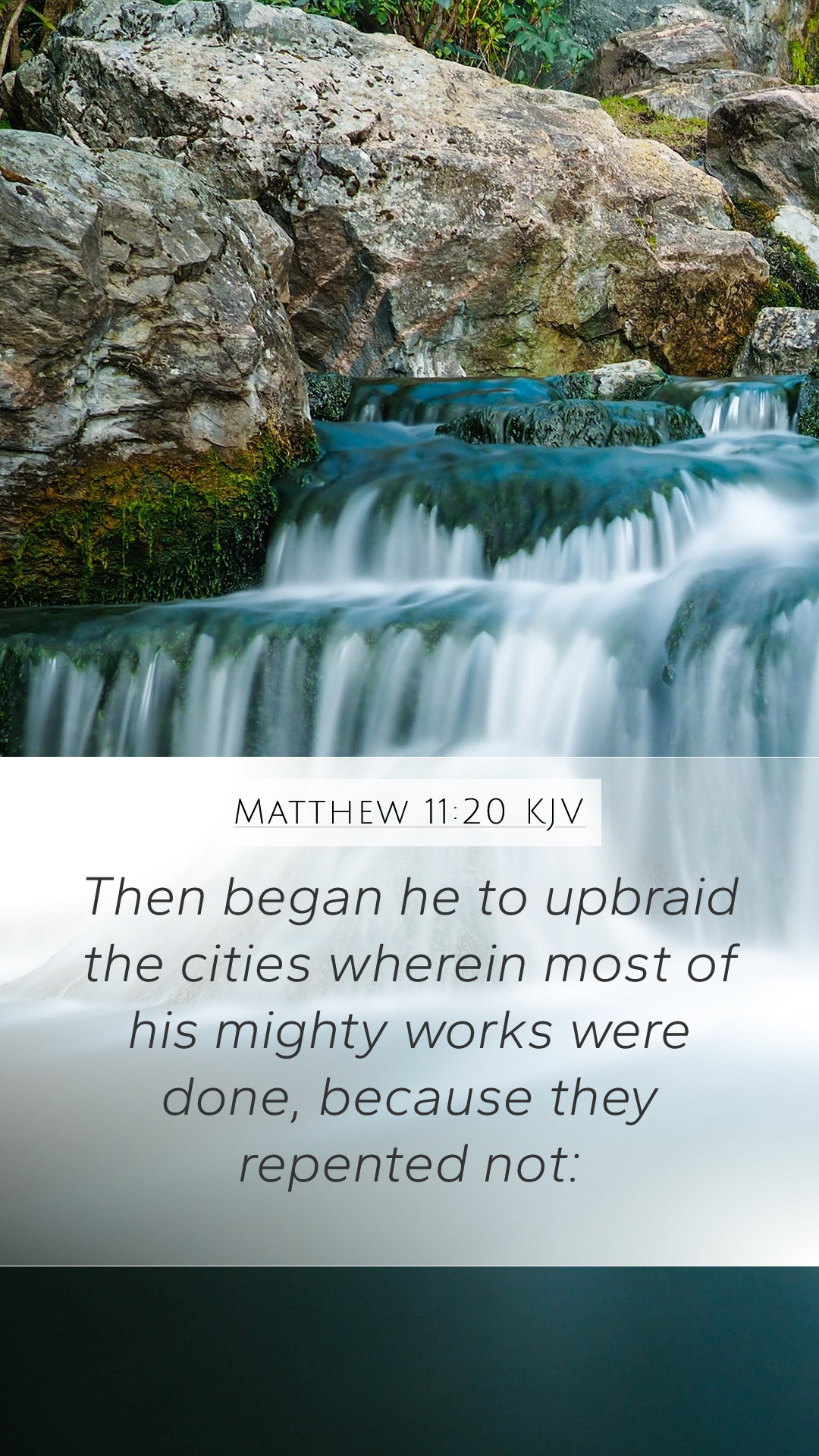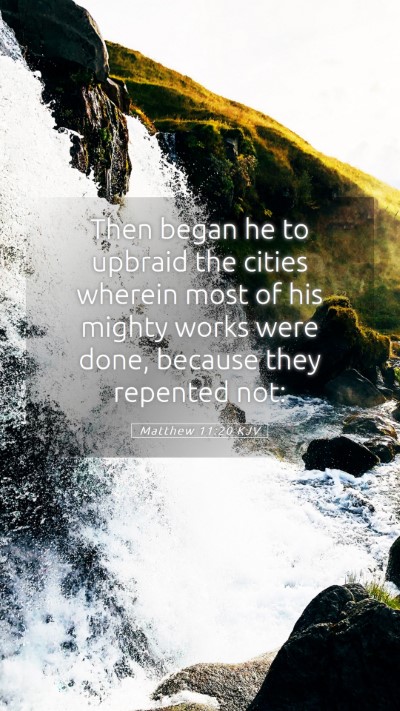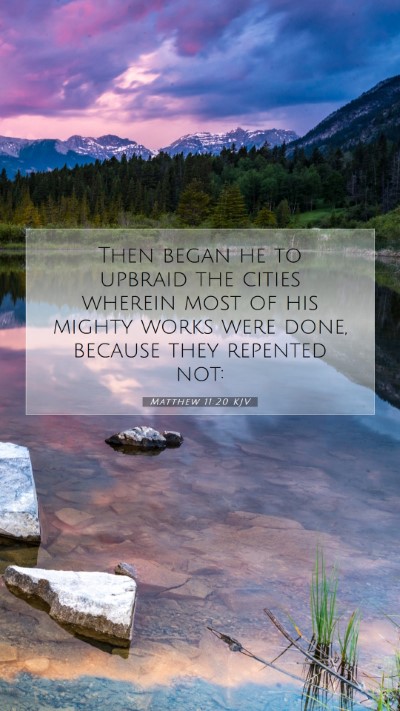Understanding the Context
In this chapter, Jesus is addressing the responses of the people in various towns to His teachings and miraculous works. Matthew Henry notes that despite witnessing His miracles, many remained unrepentant, showcasing the hardness of their hearts.
Albert Barnes reinforces this by highlighting the principle of greater judgment for those who have had the privilege of hearing the truth yet rejecting it. This emphasizes a key theme in Scripture regarding accountability in knowledge and grace.
Insights from Commentaries
-
Matthew Henry:
Henry reflects on the nature of Jesus’ criticism, indicating that it stems from His compassion for the lost. He mentions how cities like Chorazin and Bethsaida were favored with divine revelations yet did not respond appropriately.
-
Albert Barnes:
Barnes points out that the mightiest works of Jesus were intended to lead the people to repentance. The rejection of such evidence presents a severe indictment of their spiritual state.
-
Adam Clarke:
Clarke elaborates on the cities mentioned, arguing that their impenitence is the cause for their impending judgment. He makes a comparative analysis with Tyre and Sidon to illustrate the severity of their sin through rejection.
Theological Implications
This verse invites deeper Biblical exegesis, calling us to reflect on how often we may take for granted the blessings and revelations we receive. It challenges us to consider our responses to God’s word and actions in our lives.
The absence of repentance in the cities Jesus mentions points to a larger theme of the necessity of turning towards God in response to His grace and mercy.
Cross References
- Luke 10:13-14: Jesus discusses the fate of unrepentant towns.
- John 15:24: The concept of greater judgment for those who reject revealed truth.
- Matthew 12:41-42: The Ninevites and the Queen of Sheba as examples of those who responded appropriately.
Application for Today
For contemporary believers, Matthew 11:20 serves as a call to introspection. It urges us to examine our own receptiveness to God's message. Are we open to change and growth, or do we remain indifferent despite knowing His truth?
Incorporating this understanding into Bible study groups and the resources we choose can enhance our knowledge of Scripture. It challenges us to seek a deeper connection with God through repentance and acknowledgment of His work in our lives.
Conclusion
In conclusion, Matthew 11:20 offers profound insights into the nature of faith and response to God’s overtures. It is a reminder of the dire consequences of failing to acknowledge His goodness. Whether engaging in online Bible study or personal reflection, let us strive for a heart that responds to God’s call.


